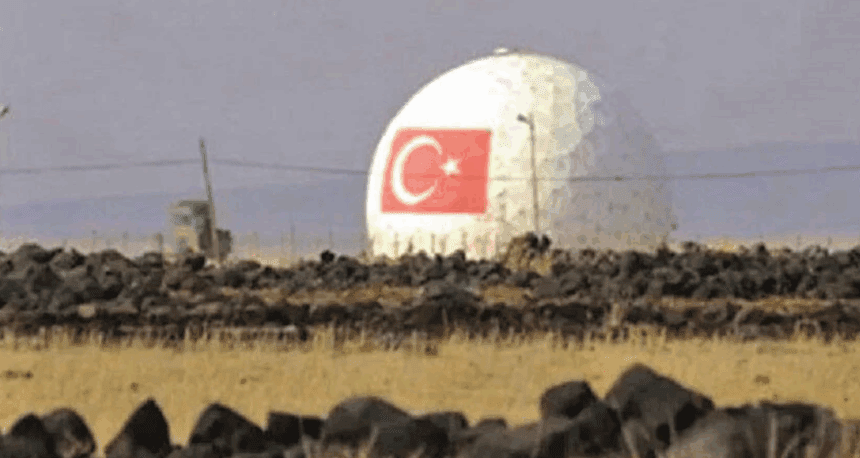As missiles fly between Israel and Iran, Turkey has doubled down on its denials that intelligence from the Kürecik radar base is shared with Israel. The radar, located in Malatya province and operated by U.S. forces under NATO command, plays a key role in tracking missile launches from Iran. With its strategic location close to Iran’s western border, Kürecik provides early warning data critical to NATO’s missile defense network.
Turkey’s Directorate of Communications and Center for Combating Disinformation issued statements this week insisting that no data from Kürecik is transmitted to non-NATO countries, including Israel. “Sharing radar base data with non-NATO allies, such as Israel, is absolutely out of the question,” the government said, describing allegations to the contrary as black propaganda and fifth column activity aimed at undermining national security.
Authorities added that the radar was established to safeguard Turkey’s national interests while contributing to NATO’s collective defense. They warned that spreading disinformation about national security is a criminal offense under Article 217/A of the Turkish Penal Code.
A Defense Deal That Undermines the Message
Despite these assurances, developments within Turkey’s own defense industry have raised fresh concerns about the consistency of Ankara’s stance. On June 16, 2025, Selçuk Bayraktar — chair of Baykar and son-in-law of President Recep Tayyip Erdoğan — signed a strategic joint venture with Italy’s Leonardo at the Paris Air Show. The partnership, LBA Systems, will focus on developing advanced defense technologies.
Leonardo, a major arms supplier to Israel, provides:
- – Naval guns for Israeli Sa’ar-class warships.
- – Radar software for the Iron Dome missile defense system via subsidiary RADA Electronic Industries.
- – Trainer aircraft (M-346, AW119Kx) for the Israeli Air Force.
- – Heavy-duty tank trailers and tactical radars for the Israeli army.
- – Helicopters and advanced radar systems under various contracts with Israel’s Ministry of Defense.
- – Innovation agreements with Israeli institutions like Tel Aviv University.
The timing of the Baykar-Leonardo agreement — amid continued Israeli military operations in Gaza and Iran — has drawn criticism. Selçuk Bayraktar, often portrayed as a defender of Palestinian rights at home, entered into this partnership even as Israel’s strikes claimed civilian lives.
Trade Ties That Tell Another Story
The Baykar-Leonardo deal is not an isolated case. Despite President Erdoğan’s fiery rhetoric against Israel’s policies, Turkey’s trade with Israel has grown steadily. In 2024, bilateral trade reportedly exceeded $8 billion, a record high. Turkish ports continue to handle shipments of goods to and from Israel, and sectors including chemicals, textiles, and machinery have seen robust exchanges.
This growing commercial relationship contrasts sharply with Ankara’s diplomatic language. While Turkey repeatedly condemns Israeli military actions and blocks its participation in NATO exercises, its economy and defense industry remain intertwined with Israeli-linked businesses.
Kürecik: The Core of the Debate
Meanwhile, the Kürecik radar remains central to debates over Turkey’s role in the conflict. Although NATO procedures prevent direct sharing of radar data with Israel, the system’s architecture means data first enters U.S. command networks before being relayed to NATO. This creates a technical possibility — even if unofficial — for the United States to share early warning data with Israel via its own military channels.
Critics argue that while Turkey insists on its sovereignty and opposition to Israeli aggression, its government and defense sector’s actions suggest a more pragmatic, and at times contradictory, approach.



